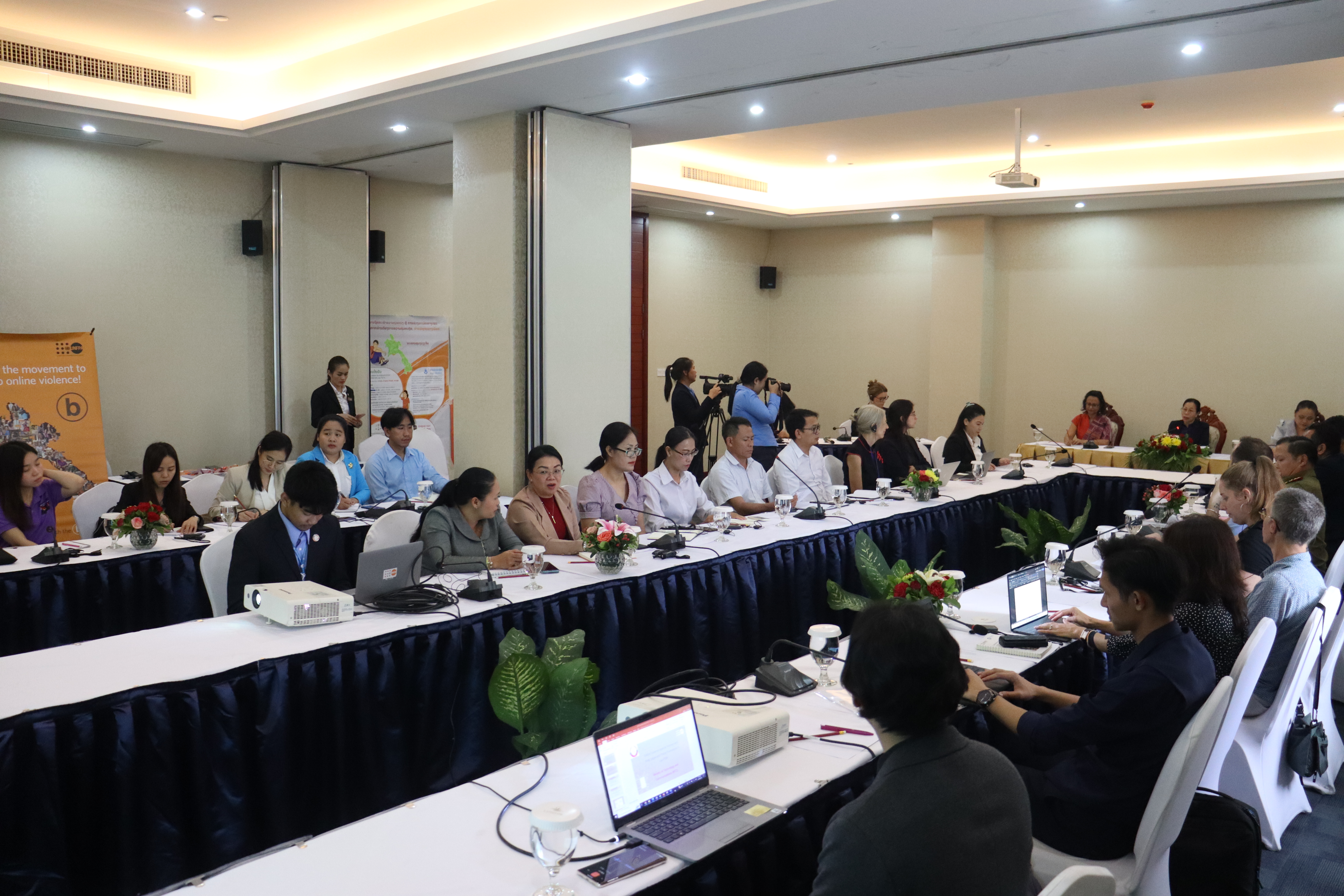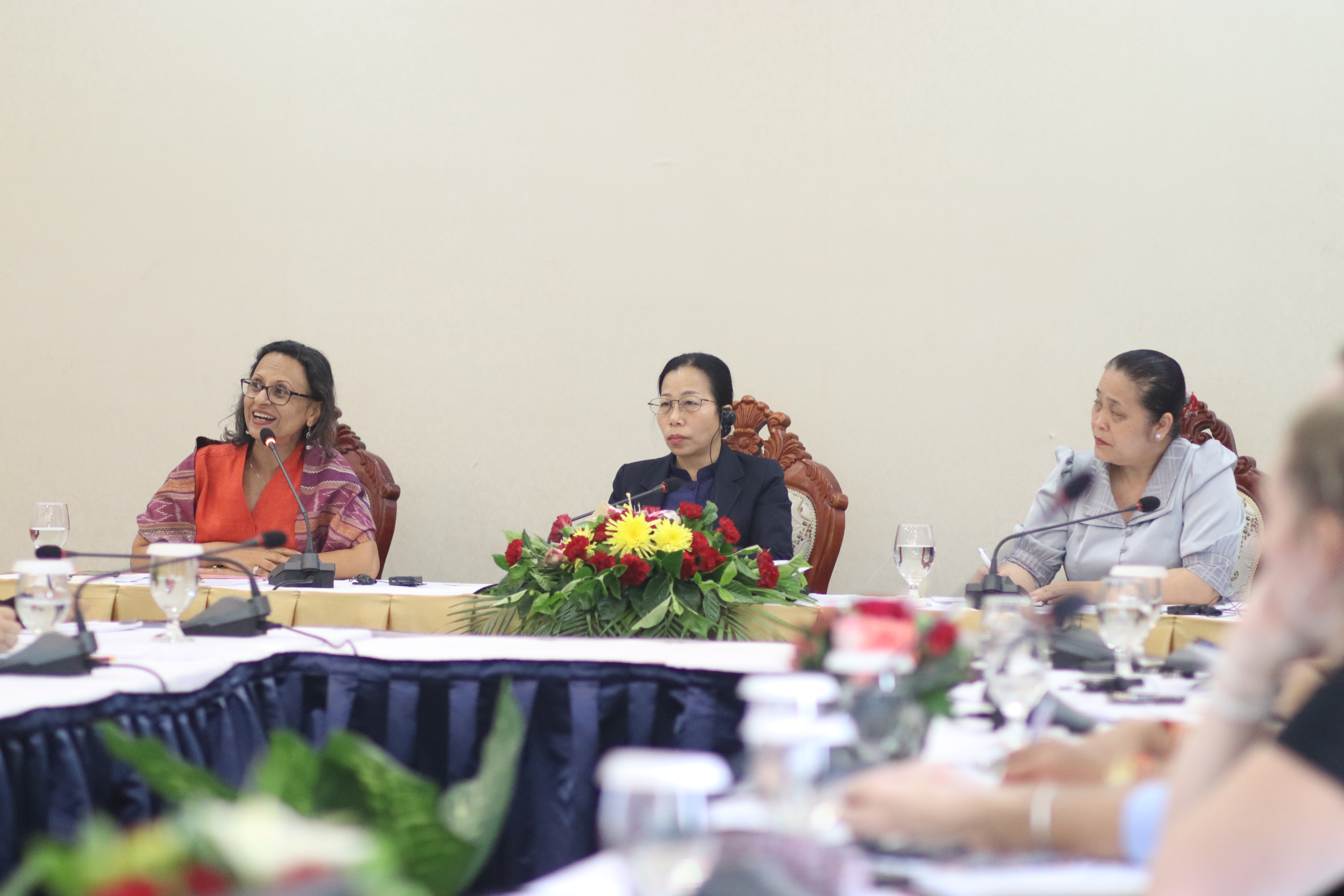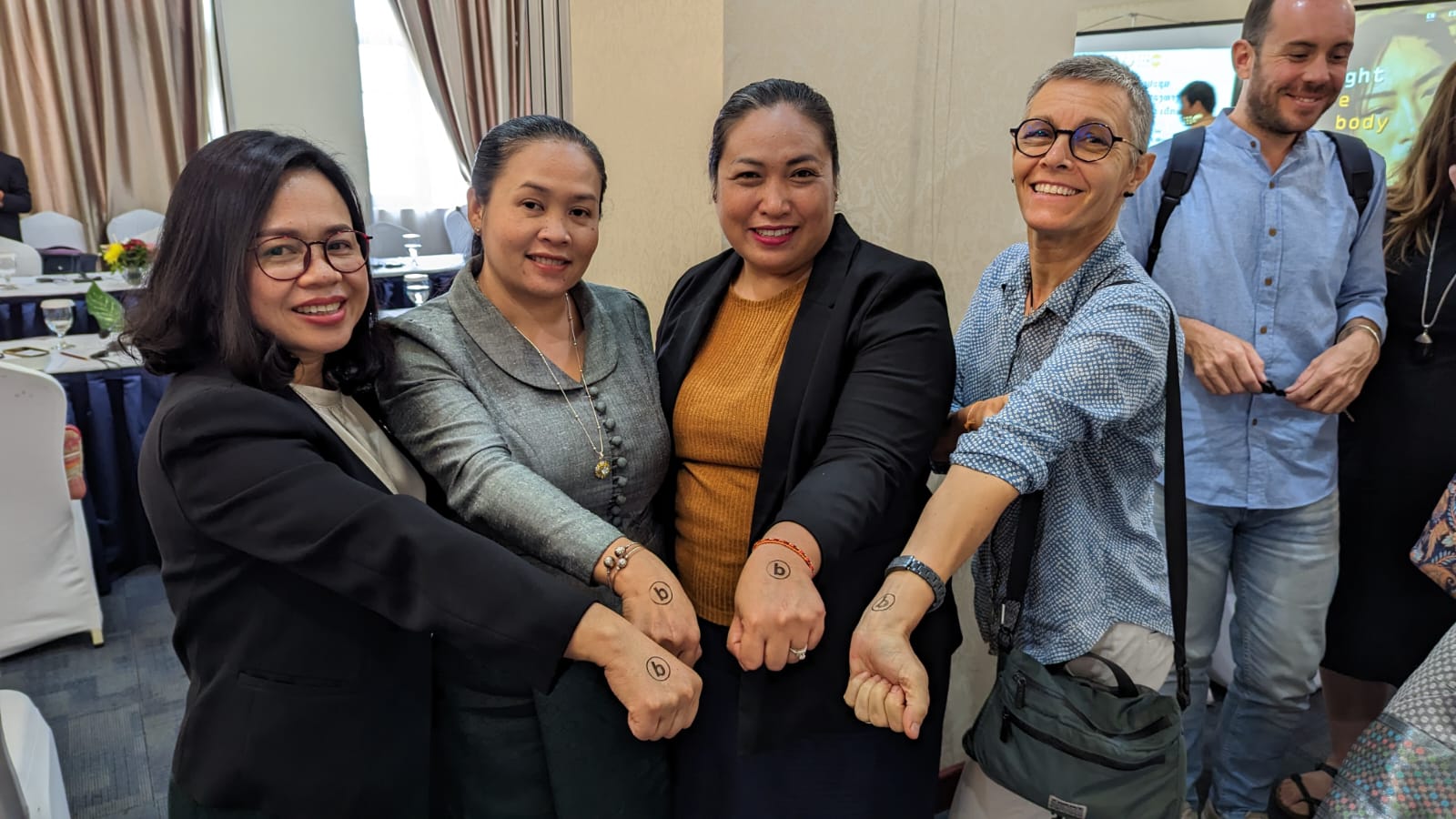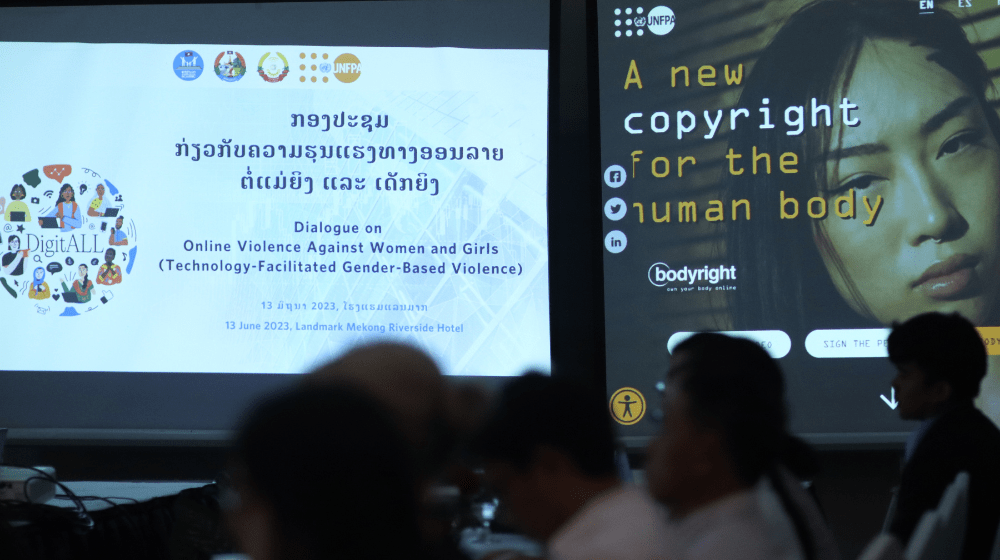16 June 2023, Vientiane, Lao PDR - The United Nations Population Fund (UNFPA), in collaboration with the National Commission for the Advancement of Women, Mothers and Children (NCAWMC), Lao Women’s Union (LWU), and the Ministry of Technology and Communications (MTC), convened a multi-stakeholder dialogue with the Government of Lao PDR and Development Partners, with more than 60 attendees discussing the landscape and pathways forward of technology-facilitated gender-based (TFGBV) violence in Lao PDR.

Online violence, also known as technology-facilitated gender-based violence, is prevalent, pervasive, highly invasive, typically sexualised and takes many forms, including non-consensual use of images, cyberstalking, the use of social media to recruit for forced sex work, and hate speech. Globally, 85% of women reported witnessing digital violence, and nearly 40% have experienced it personally.
During the meeting, Focus Group Discussion (FGD) and Key Informant Interview (KII) findings on TF GBV conducted by UNFPA in collaboration with the Government in 2022-2023, the first ever in the country, were shared with the stakeholders. This valuable data will be used to advocate for an improved understanding of the issue and identify how to strengthen legal and policy frameworks, improve available services and respond programmatically.

Mme Thamma Phetvixay, Vice President of the Lao Women's Union said, “We are committed to combating TFGBV as an emerging form of violence against women and girls in public spaces. Having worked in combating violence against women and girls in Lao PDR most recently through the Standard Operating procedures for various sectors, we understand the evolving nature of Violence Against Women, and we stand ready to tailor our practices to keep up with the changing digital GBV landscape”.
The consequences of these violations of a person's privacy, dignity, autonomy and rights are devastating. The impacts of TFGBV are documented as being as serious as other forms of physical and psychological violence, although not often recognised as a form of violence by institutions or the survivors themselves.
Ms Kesone Soulivong, Director of Promotion Department, Ministry of Technology and Communications, said, “TFGBV is a very serious issue, and we are pleased that this is being given a platform to discuss so that government and development partners can work together to prevent and respond to online violence against women and girls”.

“UNFPA is committed to combating this emerging form of violence in Lao PDR. As Laos has establishment of a National Committee on Digital Transformation, I encourage the Government to ensure that online protection of women, girls, children and diverse communities is part of the committee's work. Bodily autonomy is the right of every individual, to live free from fear and violence, both online and offline” said Mariam A. Khan, UNFPA Representative.
***
UNFPA, the U.N.'s sexual and reproductive health agency, works in over 150 countries, including Lao PDR, to achieve zero maternal deaths, zero unmet family planning needs, and zero gender-based violence.
For more information, please contact:


